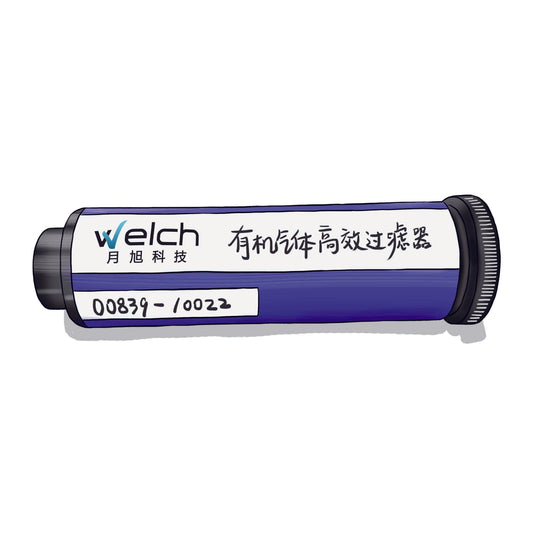In the field of chromatographic analysis, using instruments with mobile phases, including HPLC, UPLC, etc., may generate hazardous waste fluids. Improper treatment of these volatile waste fluids may seriously affect the laboratory environmental quality and
do harm to the human body. In order to create a safe, effective, proper-order laboratory environment, and achieve the goal of "Scientific, standardized, safety and efficiency", Welch has launched a series of laboratory collection kits.
Connected Safety Collection Device
The filter in waste liquid tank mouth can release the pressure in the tank and filter hazardous volatiles. Different types of liquid level indicators are provided inside the tank to remind the analysts to handle the waste liquid in time. This connected safety collection device includes standard type, simple type, high-efficiency type, intelligent type. Simple type device is suitable for 4L reagent bottle, and details are shown in ordering information.

This connected safety collection device includes standard type, simple type, high-efficiency type, intelligent type. Simple type device is suitable for 4L reagent bottle, details are shown in ordering information here.

- Equip with PTFE one-way valve, pore size: 0.22 μm
- Equip with standard GL45 reagent bottle, other specifications of caps can also be customized
- Prevent volatilization of gases, and protect the experimental environment
- Protect the purity of reagents
Filter
- Efficient filter can replace the inner core separately and configure the time label
- Fully absorb harmful gas to avoid gas leakage
- A wide combination of filter materials are available
- Optional saturation indicator
- Unified standard interface
Bearing Car
- Equipped with rod fixed collection container
- Wheel pulley with latch construction


In the field of chromatographic analysis, using instruments with mobile phases, including HPLC, UPLC, etc., may generate hazardous waste fluids. Improper treatment of these volatile waste fluids may seriously affect the laboratory environmental quality and
do harm to the human body. In order to create a safe, effective, proper-order laboratory environment, and achieve the goal of "Scientific, standardized, safety and efficiency", Welch has launched a series of laboratory collection kits.
Connected Safety Collection Device
The filter in waste liquid tank mouth can release the pressure in the tank and filter hazardous volatiles. Different types of liquid level indicators are provided inside the tank to remind the analysts to handle the waste liquid in time. This connected safety collection device includes standard type, simple type, high-efficiency type, intelligent type. Simple type device is suitable for 4L reagent bottle, and details are shown in ordering information.

This connected safety collection device includes standard type, simple type, high-efficiency type, intelligent type. Simple type device is suitable for 4L reagent bottle, details are shown in ordering information here.

- Equip with PTFE one-way valve, pore size: 0.22 μm
- Equip with standard GL45 reagent bottle, other specifications of caps can also be customized
- Prevent volatilization of gases, and protect the experimental environment
- Protect the purity of reagents
Filter
- Efficient filter can replace the inner core separately and configure the time label
- Fully absorb harmful gas to avoid gas leakage
- A wide combination of filter materials are available
- Optional saturation indicator
- Unified standard interface
Bearing Car
- Equipped with rod fixed collection container
- Wheel pulley with latch construction



